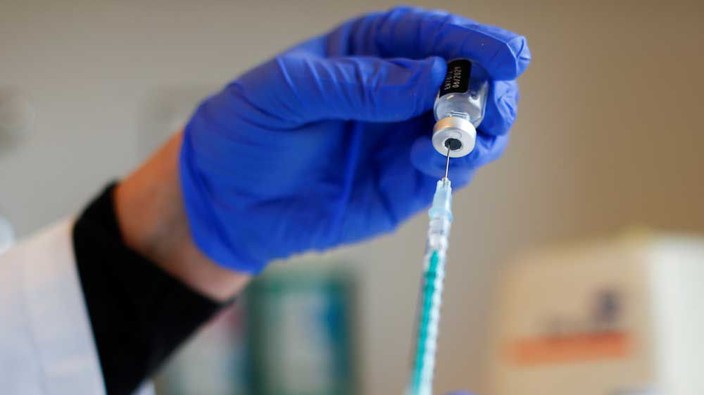opinion: the risk of delaying the 2nd covid shot
delaying second vaccine dose for those over 80, and immunocompromised individuals is simply the wrong decision.

there is a firestorm of protest against the highly controversial and in my view erroneous decision, to delay second vaccine shots for high risk groups for 16 weeks. this applies to those over 80, and immune compromised individuals who have been denied a second coronavirus vaccine shot within the timeline suggested by the vaccine manufacturer. such timelines between shots was based on trial data for mrna vaccines submitted for regulatory approval. this is the type of novel vaccine that almost all such high risk people were given, since these vaccines were shown to have the highest efficacy in preventing infection.
the delay to 16 weeks for the second shot was the result of a lack of vaccine availability. it was based on the unproven hope that such delay could safely allow for early vaccination of more people with a protective, albeit diminished effectiveness of a single dose.
the national advisory committee on immunization (naci) suggested that such deferral of a second dose was likely safe, based on no real data. it was an extrapolation from data not from mrna vaccines, but from viral vector vaccines, which were less effective in preventing infection, but highly effective in preventing death.
advertisement
while this position could be understood, if not agreed with, when there was no data, it is untenable now that there is a growing body of data against it.
trial data of the new vaccines did not adequately represent these ultra high risk groups for vaccine efficacy. real world data showed a great reduction in nursing home and other deaths with vaccination and to some degree after the first dose. much of this data came before the more contagious and dangerous b 1.1.7 strain, first detected in the united kingdom, greatly dominated infections in many countries.
studies from germany and england, and now b.c. have shown highly concerning lack of antibody production after a first dose in many elderly, immune compromised and cancer patients which can be greatly boosted by a timely second dose. in the uk study of cancer patients, 95 per cent developed adequate antibody response with two appropriately timed pfizer doses but only 43 per cent if the second dose was delayed.
further evidence of the need for an early second shot for older people comes from a recent danish study published in the lancet that showed increased risk of reinfection after getting covid-19 based on age. this is evidence of declining protection from the antibody response to first infection, similar to the declining benefit from vaccination without a booster. younger people had an 80 per cent freedom from reinfection compared to only 47 per cent for those over 65.
advertisement
the delayed jab strategy is opposed by the vaccine manufacturers, u.s. experts, a growing body of physicians and by canada’s chief science advisor dr. mona nemer.
canadian vaccine availability will soon greatly increase. maj-gen danny fortin has estimated that next week canada expects to receive 1.2 million pfizer doses, 846,000 moderna doses and likely 1.5 million astra zeneca doses with another million in mid-april. it appears that vaccine shipments from the eu and india will continue as scheduled rather than withheld for political reasons. thus in the next three weeks canada should receive over 4.5 million doses, an amount equal to all shots given to date since the first roll out about three months ago.
ontario’s share would be about 750,000 mrna shots and almost one million astra zeneca shots. it is estimated that up to 500,000 shots would be required of the pfizer or moderna vaccines to fully immunize those in ontario at highest risk with an earlier and appropriately timed second shot. this would leave about 1.2 million shots to start immunizing others over 60 in the next few weeks and protect those at the next levels of high risk. similar supply levels are likely to be available monthly as the approved and effective j&j vaccine gets delivered.
advertisement
the decision to reinstate the proper dosing schedule is one for each province to make. ontario doesn’t require federal authorization. it should change practice very quickly. a compromise of a six-week delay — not 16 — is potentially palatable. when deaths are reported in these very high risk groups due to delays in second shots, it will demonstrate not just bad medicine, but bad politics, something even more dangerous for governments.
 3 minute read
3 minute read





